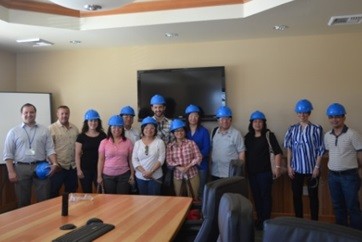
As a country that is highly vulnerable to climate change impacts, the Philippines prioritizes climate change adaptation, developing climate resilience, and disaster risk reduction and management. While the country’s greenhouse gas (GHG) emissions may increase, it is still relatively a low-emitter and does not have any required commitment to lower its emissions. However, the Government of the Republic of the Philippines (GPH) has expressed a commitment to pursue green growth strategies or mitigation activities as it would contribute to climate change adaptation and to achieve other co-benefits, such as promoting climate smart development.
In November 2011, the GPH, represented by the Philippine Climate Change Commission and the USG, represented by USAID, formalized its partnership through a Memorandum of Understanding to further cooperation and support for LEDS development in the country. The Philippines is one of the five countries in Asia and of more than 20 countries globally where EC-LEDS is being implemented.
PILLARS OF THE EC-LEDS PROGRAM IN THE PHILIPPINES
A multi-stakeholder workshop to develop a work plan for the program in the country resulted in the following major pillars:
- Enhanced coordination and support to the LEDS process
- Development or enhancement of the National GHG inventory system
- Analytical decision-making
- Measurable implementation progress in key areas
GOAL
It supports and enhances country-led development programs, plans and policies, and complements efforts of other international donors and organizations to support low emission development strategies (LEDS).
FOCUS AREAS IN THE PHILIPPINES
- Improve institutional capacity on National Greenhouse Gas inventory
- Improve in-country capacity in the use of analytical tools for decision-making
- Strengthen the design and implementation of programs to promote clean energy utilization, energy efficiency and REDD+ strategies and land use initiatives







Comment
Make a general inquiry or suggest an improvement.